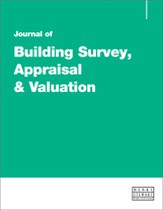Fire suppression in historic buildings
Abstract
An account of the controversial history of fire suppression as a conservation measure in historic buildings and the increasing acceptance of its benefits in promoting life safety and reducing the damage done by fires to historic building fabric and by conventional firefighting efforts. The article also describes how sprinklers do and do not operate and some situations in which they have been deployed.
The full article is available to subscribers to the journal.
Author's Biography
David Gibbon is a chartered building surveyor and building engineer based in Edinburgh but practising throughout Scotland and the UK. He is one of the founding directors of GLM, a mixed practice of building surveyors, architects and project managers with a particular specialism in due diligence in relation to heritage-constrained buildings and their adaptive reuse. He has been responsible for major projects to some of the finest buildings in Scotland and is supported by a highly experienced professional and technical team.
Citation
Gibbon, David (2014, January 1). Fire suppression in historic buildings. In the Journal of Building Survey, Appraisal & Valuation, Volume 2, Issue 4. https://doi.org/10.69554/VKCF8526.Publications LLP
